edwardsand

Joined: Jun 29, 2018
Posts: 776
|

Posted on Sep 15 2024 10:16 PM
Okay, I know the real answer is 1 more than you have now. But I'm starting to be surrounded by amps and getting seduced by more, and if I lived in California, it would be a seismic hazard because I'd be stacking them on top of each other in the small house I'd have to live in.
Really, the question is, how many amps do you think you would need to satisfy all your different musical circumstances? There's low volume practice at home, and then gigging volume amps. And then there are amps to work for other genres you might enjoy playing. So what is the minimum amp complement that would satisfy all your needs?
|
kick_the_reverb

Joined: Feb 26, 2006
Posts: 1337
Escondido, CA







|

Posted on Sep 15 2024 10:36 PM
Not sure why people keep saying you need a small amp to practice at home. I practice with my live amps at low volume and it's never been a problem. But to the specific question - if you gig, I am in the opinion that you probably need a backup amp that at least is similar to your main gig amp.
That's about it. This is in the surf music contest. If you're playing completely different styles then of course you may need several more amps.
Ran
— The Scimitars
|
Samurai
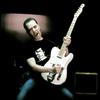
Joined: Mar 14, 2006
Posts: 2258
Kiev, Ukraine



|

Posted on Sep 15 2024 11:25 PM
I always had one amp in bedroom, usually the one that you may have nice sound on low volumes. For gigs amps were always provided by venues and rehearsal studios also equipped with everything, although it’s not so here in Germany as I see so if I am to gig I will probably buy something. Considering style - I have pedals for this)
— Waikiki Makaki surf-rock band from Ukraine
https://linktr.ee/waikikimakaki
Lost Diver
https://lostdiver.bandcamp.com
https://soundcloud.com/vitaly-yakushin
|
chiba
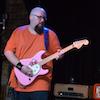
Joined: Sep 02, 2022
Posts: 519
Central VA







|

Posted on Sep 16 2024 03:45 PM
I need ... six. Unfortunately, I currently have 10. I'm working on it 
— --
Project: MAYHEM by Hypersonic Secret now available!
|
AgentClaret
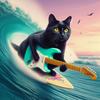
Joined: Jan 30, 2024
Posts: 133


|

Posted on Sep 16 2024 05:21 PM
I've only ever had one at a time. And solid state, at that. I think I'm going to get my first tube amp come tax return season...
|
ArtS

Joined: May 09, 2008
Posts: 1364
Isle of Kent, MD







|

Posted on Sep 16 2024 08:13 PM
Each has a purpose, so I NEED THEM ALL!!!! 
Fender 65 Twin Re-issue (studio)
Fender Purple Hot Rod Deluxe (Good for mid-size live gigs)
Fender Deluxe Reverb (Gigs/studio/practice)
Fender PA-100 Head played through PRS 8 x 10 cabinet (Baritone)
Fender Blues Jr. (was for room practice, use it when I practice at peoples houses)
Vox Valvetronix VT40+ (never use. looking for neighbor's kid to give to)
My Dad's Hawaiian Tube amp, probably from the 40s. (needs work)
— Surfcat
MARCH OF THE DEAD SURFERS! (2024) - Agent Octopus
Wake up Jimmy! It's Christmastime! (2024) - Agent Octopus (Single)
YOUTUBE - Agent Octopus Surf
|
Pyronauts
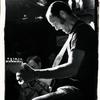
Joined: Feb 27, 2006
Posts: 1132
Northern CA






|

Posted on Sep 16 2024 09:38 PM
One. Of. Each.
Each color, each year.
Will forever be searching for The One.
But at least two at a time.
|
DeathTide

Joined: Apr 13, 2018
Posts: 1378
New Orleans






|

Posted on Sep 19 2024 01:17 PM
What are numbers? What is sound? The answer is Ax = S, how many Amps are needed to get your Sound. For me, x = 20.
— Daniel Deathtide
|
synchro

Joined: Feb 02, 2008
Posts: 4462
Not One-Sawn, but Two-Sawn . . . AZ.





|

Posted on Sep 19 2024 04:26 PM
I love amps. To me, they are fascinating and there are any number of variations that can be produced, with simple changes. For example, the Super Reverb has a smaller midrange capacitor and between that and the 4 10” speakers, the sound is much warmer and has more midrange than its siblings, based upon the same basic AB763 circuit. Vox have their own voice, as do Marshall and, of course, Fender. I’ve found that the Vox tone stack works well for my tastes, but I move between a Vox circuit, a ‘62 Princeton circuit and a ‘68 Custom Deluxe Reverb, which uses the same tone stack midrange cap as the Super Reverb. That seems to be a step closer to the texture of a ‘62 Showman.
— The artist formerly known as: Synchro
When Surf Guitar is outlawed only outlaws will play Surf Guitar.
|
edwardsand

Joined: Jun 29, 2018
Posts: 776
|

Posted on Sep 19 2024 07:31 PM
synchro wrote:
I love amps. To me, they are fascinating and there are any number of variations that can be produced, with simple changes. For example, the Super Reverb has a smaller midrange capacitor and between that and the 4 10” speakers, the sound is much warmer and has more midrange than its siblings, based upon the same basic AB763 circuit. Vox have their own voice, as do Marshall and, of course, Fender. I’ve found that the Vox tone stack works well for my tastes, but I move between a Vox circuit, a ‘62 Princeton circuit and a ‘68 Custom Deluxe Reverb, which uses the same tone stack midrange cap as the Super Reverb. That seems to be a step closer to the texture of a ‘62 Showman.
I know we've discussed at least one of your amps before - the Winfield based on the 6G2 circuit, and I really dig the 6G2 circuit amp I built. I also built an AB763 Deluxe Reverb (single channel, no trem), and I added a mid/raw control based on Rob Robinette's design. That mid/raw pot allows me to add a lot of warmth to the sound. I need to A/B it with the 6G2 some more, but it gives a lot more versatility to a classic amp, and I may even dare to say it gets you solidly in Fender blonde territory.
|
synchro

Joined: Feb 02, 2008
Posts: 4462
Not One-Sawn, but Two-Sawn . . . AZ.





|

Posted on Sep 19 2024 09:15 PM
edwardsand wrote:
synchro wrote:
I love amps. To me, they are fascinating and there are any number of variations that can be produced, with simple changes. For example, the Super Reverb has a smaller midrange capacitor and between that and the 4 10” speakers, the sound is much warmer and has more midrange than its siblings, based upon the same basic AB763 circuit. Vox have their own voice, as do Marshall and, of course, Fender. I’ve found that the Vox tone stack works well for my tastes, but I move between a Vox circuit, a ‘62 Princeton circuit and a ‘68 Custom Deluxe Reverb, which uses the same tone stack midrange cap as the Super Reverb. That seems to be a step closer to the texture of a ‘62 Showman.
I know we've discussed at least one of your amps before - the Winfield based on the 6G2 circuit, and I really dig the 6G2 circuit amp I built. I also built an AB763 Deluxe Reverb (single channel, no trem), and I added a mid/raw control based on Rob Robinette's design. That mid/raw pot allows me to add a lot of warmth to the sound. I need to A/B it with the 6G2 some more, but it gives a lot more versatility to a classic amp, and I may even dare to say it gets you solidly in Fender blonde territory.
The AB763 is a great circuit, and there’s a lot you can do with it. The Deluxe Reverb doesn’t have a discrete Mids control, so you definitely gain a lot of versatility by adding one. The other thing about the Deluxe Reverb is capacitor C-10, on the second channel, which allows highs to bypass the volume control. That’s great for Bakersfield sounds, but may not be the best for trying to get Blonde sounds.
Years ago, I dropped by Rainbow Guitars to try out an RC-3 Looper, and they plugged me into an amp that looked like a Silverface Deluxe Reverb, a then new model called the ‘68 Custom Deluxe Reverb. It has reverb on both channels and the first channel, the Modified channel has a “Bassman Tone Stack”. Well, if you check, it’s also the Super Reverb tone stack. That channel gets you a bit closer to the sonic territory of a Blonde Fender. The ‘68 CDR was modified for lower clean headroom, but by piggybacking a second negative feedback resistor, lowering the NFB circuit acts as it would in an unmodified Deluxe Reverb, restoring the headroom to stock values.
The Tremor is pretty similar to a 6G2, and sounds great for Surf. If I was going to record a perfect Surf sound, that’s the amp I’d use. The 6G2 circuit is functionally very similar to a Tweed Vibrolux. The signal path is slightly different, between the two, but the circuits function pretty much the same.
— The artist formerly known as: Synchro
When Surf Guitar is outlawed only outlaws will play Surf Guitar.
|
revmike

Joined: Feb 26, 2006
Posts: 3811
North Atlantic








|

Posted on Sep 20 2024 08:59 AM
As mentioned, realistically just one, for me. It would be my Vibrasonic. I also have another big stage amp (Garnet Rev II), that I use on occasion, as well as a handful of small recording amps, and a Quilter SB US. The variety of amps are really great for finding different sounds for recording, or practicing. Different amps inspire different ways.
Rev
— Canadian Surf
http://www.urbansurfkings.com/
|
synchro

Joined: Feb 02, 2008
Posts: 4462
Not One-Sawn, but Two-Sawn . . . AZ.





|

Posted on Sep 20 2024 09:32 AM
revmike wrote:
As mentioned, realistically just one, for me. It would be my Vibrasonic. I also have another big stage amp (Garnet Rev II), that I use on occasion, as well as a handful of small recording amps, and a Quilter SB US. The variety of amps are really great for finding different sounds for recording, or practicing. Different amps inspire different ways.
Rev
Vibrasonic is a great choice. All but forgotten, but a wonderful design.
— The artist formerly known as: Synchro
When Surf Guitar is outlawed only outlaws will play Surf Guitar.
|
chiba

Joined: Sep 02, 2022
Posts: 519
Central VA







|

Posted on Sep 20 2024 09:47 AM
I've been thinking about this thread all week.
Based on my current usage, I only need one amp, my '59 RI Bassman combo. I put an RI reverb in front of it, and that's what I use to record the bulk of what I record. If I need a fuzz or OD tone, I have pedals for that, and the amp takes pedals exceedingly well. (If I could find a 2-ohm attenuator, I likely wouldn't even need those.)
Now, having said that, I do gig occasionally and that Bassman combo is a beast, about 55 pounds IIRC. And it's big, tough to carry down the stairs without putting dings in the wall. So that ups my need to two amps: the RI Bassman combo and something smaller/lighter for the occasional gig. My choice there for the last few gigs I've played is the Vox MV50BM, which is a full-featured amp small enough to mount on a pedalboard. With the gain all the way on zero, it has a GREAT clean sound. For crunch sounds, the gain is great anywhere from 1 to 10. As long as I leave the treble boost off, the amp is even fairly quiet.
I also play bass, and for recording it's nice to have a miked sound for that, so that means I need a bass amp as well, so now I'm up to 3. My choice here is a recent acquisition, the Fender Rumble 40 (v3), which I got after using one not long ago that belonged to somebody else.
So when it comes to need, I guess my real answer is 3. I have some other amps I really like, but I don't NEED them. I've already decided to sell a few of them, maybe I'll dig deep and sell the rest, only keeping the 3 I've just said here I need. Amps are hard to sell, though, because they're expensive enough to ship that the best way to sell them is locally, and then you've got to rely on somebody within a hundred miles (ish) of you wanting that exact amp you're trying to sell.
I'd love to have a vintage Fender, maybe a Vibro-King or something older with the tremolo built in ... but I don't really need one 
— --
Project: MAYHEM by Hypersonic Secret now available!
Last edited: Sep 20, 2024 09:48:15
|
revmike

Joined: Feb 26, 2006
Posts: 3811
North Atlantic








|

Posted on Sep 20 2024 09:50 AM
synchro wrote:
revmike wrote:
As mentioned, realistically just one, for me. It would be my Vibrasonic. I also have another big stage amp (Garnet Rev II), that I use on occasion, as well as a handful of small recording amps, and a Quilter SB US. The variety of amps are really great for finding different sounds for recording, or practicing. Different amps inspire different ways.
Rev
Vibrasonic is a great choice. All but forgotten, but a wonderful design.
Agreed
— Canadian Surf
http://www.urbansurfkings.com/
|
Klas
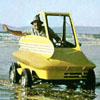
Joined: Feb 26, 2006
Posts: 2294
Stockholm, Sweden



|

Posted on Sep 20 2024 02:17 PM
3 (Fender Deluxe Reverb Amp, Fender Champion 600, and a VOX AC4TV).
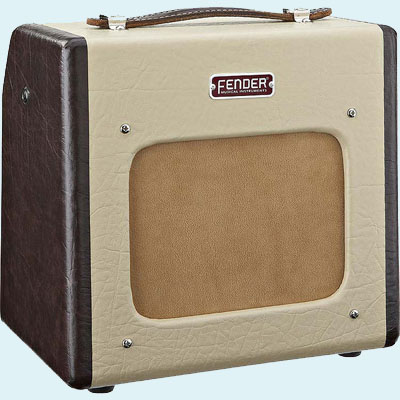
Fender Champion 600
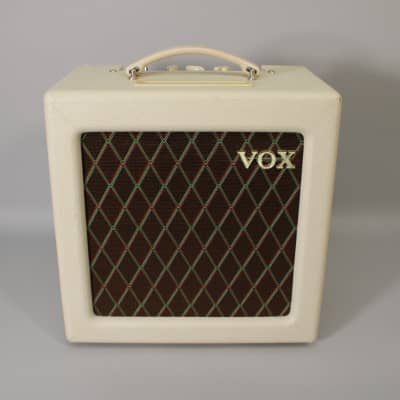
VOX AC4TV
— T H E ✠ S U R F I T E S
Last edited: Sep 21, 2024 18:03:39
|
edwardsand

Joined: Jun 29, 2018
Posts: 776
|

Posted on Sep 21 2024 09:43 AM
As for me, I'd love to have One Amp to Rule Them All. But that's hard to find unless you find a modeling/emulating amp that sounds great and suits all your needs (I'd be willing to try a Boss Nextone, which has potential).
Otherwise, I need a couple of amps for practicing at home and schlepping to go play with friends - I say a couple because I like having different sounds available and different levels of headroom/breakup. I need a good loud amp in case I manage to ever get a band together again so that I'd play actual live gigs.
That being said, I've got like 10. Of those: 2 are in need of repair and don't get played, 3 are stuck in a corner or distant location and never played, and 1 is a cheap practice amp that I'm going to sell.
The remaining four get played more often. One is the 6G2 Princeton-based amp I mentioned above, which I built and it has a vintage Oxford 12T6 speaker. I love the tone of this amp and its tremolo. It doesn't get very loud, just gets compressed the more you turn it up. Not really suited for gigs, but this one is a keeper. Another is an amp I built with the AA764 Champ circuit, plus some mods to make it more versatile. It's louder than the 6G2, but I don't play it too much. Third amp is a cheap early 1960s MIJ amp, similar to a tweed Princeton circuit. It's maybe 2-5 watts, and produces great distortion when turned up - great for trashy garage and bluesy stuff, but kind of a 1-hit wonder.
The amp I use most is another one I built, based on the AB763 Deluxe Reverb (also mentioned above). It's a single channel (normal channel is not necessary) with reverb, but no tremolo. It's really loud - I never crank it past 4, and even then, things are rattling. I added a mid-raw control, which does more than give you a mids control - in the lower range, it serves as a standard mid control, but going higher, it is gradually removing the high and low controls out of the circuit, and full on it is basically bypassing the tone stack (that's the raw part of the control). This gives it a lot more versatility. I can get the classic black panel AB763 sound, and then go into the sonic territory of the brown and tweed amps. I need to play with that more.
Overall, the AB763 amp comes closest to the one amp to rule them all, but not quite there. I still play the other three, so four seems to be about the number of amps I actually need. Plus one more.
|
taijiguy
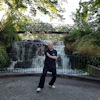
Joined: Mar 27, 2006
Posts: 210
Newington, CT USA


|

Posted on Sep 21 2024 11:14 AM
I really only need one...my 65 Princeton Reverb reissue with Weber California 10. But I'm too lazy to move an amp from room to room,so I keep a Marshall DSL5C in another room, and my outdoor sitting-on-the-swing-chair-drinking-a-beer amps are battery-operated Blackstar Flys (one bass, one guitar) with extension cabinets.
|
nedorama
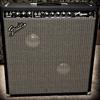
Joined: Oct 10, 2009
Posts: 226
South Bay, CA

|

Posted on Sep 21 2024 05:13 PM
Currently? 6, or 3 heads and 3 combos.
'65 Hilgen Basso Grande head - first amp I ever owned and re-bought this and had it worked on. Has an early Ampeg feel with the 7591 tubes. Angry on guitar!
Dr. Z MAZ 18 Jr - EL84 VOX flavor with PPIMV
65 Tremolux with 2x10 cab - this one mostly stays home
74 Princeton - Small home practice amp for super clean at low volume.
77 Vibrolux Reverb - main gigging amp now - great for shows with no monitors and the open back lets the drummer hear me.
81 Princeton Reverb - usually bring with the Dr. Z to run in stereo or have the 6V6/EL84 mix...
—
'65 Fender Tremolux, '74 Princeton; 77 Vibrolux Reverb; '81 Princeton Reverb
'65-66 Hilgen Basso Grande
Dr. Z MAZ 18 Jr. + 1x12 Cab
Various Telecasters and noise-making pedals
Farfisa Compact Duo
|
WoodyJ

Joined: Apr 05, 2006
Posts: 1544
Bethlehem, GA






|

Posted on Sep 23 2024 07:03 PM
Well, I guess that it depends on what the amps are used for.
Until recently, I had only been recording stuff in my home studio. Everything that I was using were smallish amps, a Fender Princeton Reverb, a Chris Stapleton Princeton and a VOX AC10. Those worked substantially better for me in a studio than the larger Fenders ever did.
Recently, I found myself being the bassist in two Atlanta-area local bands that feature old band friends of mine. In those bands I use my favorite old Precision Bass. However, for home practicing I use a Gibson Les Paul DC Junior short scale bass. Why? Because it is way more comfortable to play than my Fender basses, and it really does sound equally as good as those. Unfortunately, Gibson ceased building them last year.
The gigged bass amps are either a Mesa or an Ampeg, depending on the room size.
— Jack Booth
(aka WoodyJ)
The Mariners (1964-68, 1996-2005)
The Hula Hounds (1996-current)
The X-Rays (1997-2004)
The Surge! (2004, 2011-2012)
Various non-surf bands that actually made money (1978-1990)
|








































